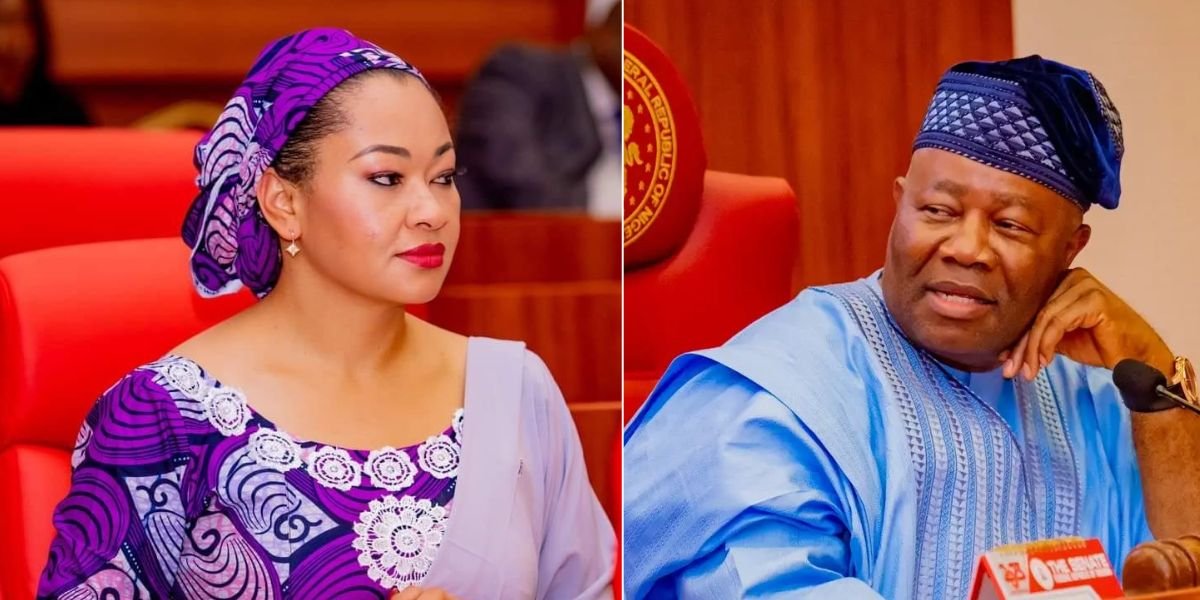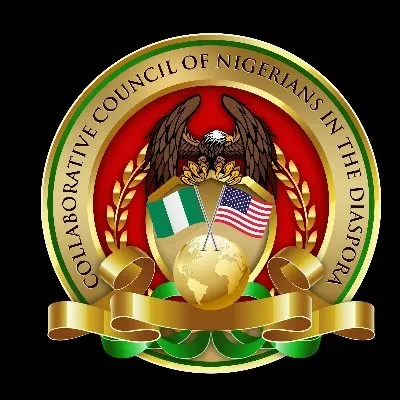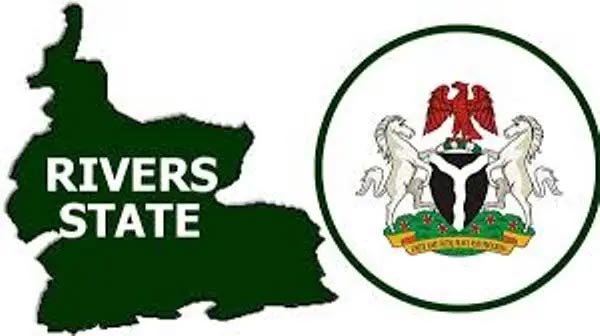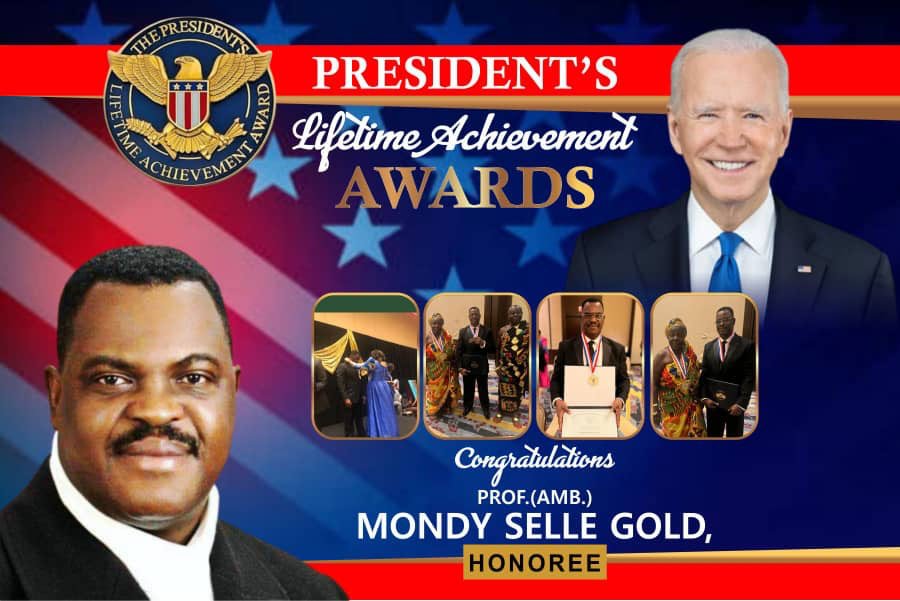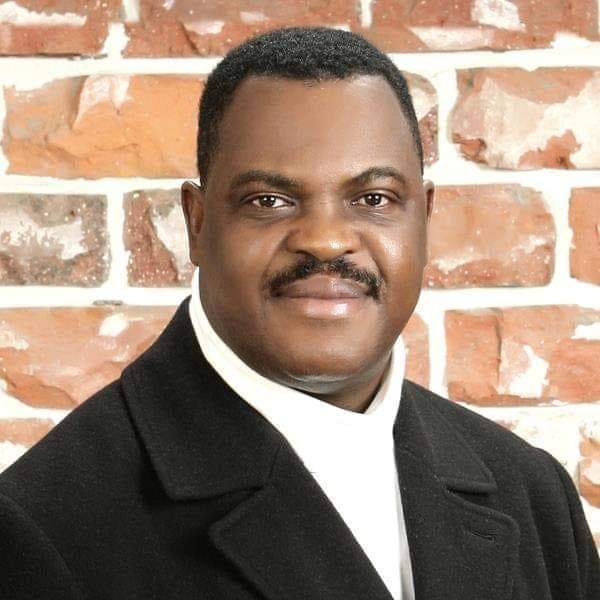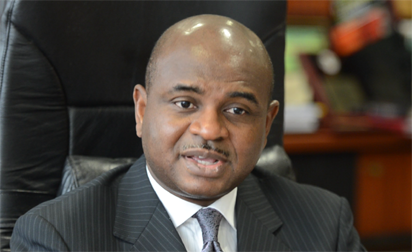Senator Natasha Akpoti Uduaghan’s Suspension from the Senate: A Grave Injustice and a Threat to Democratic Principles. Millions of Nigerians viewed and heard the news of Senator Natasha Apoti Uduaghan’s suspension from the senate with utter dismay and shock. The turn of events that led to that erroneous decision on the recommendation of its Committee on Ethics, Privileges, and Public Petitions have been conscientiously followed by the CCND- The Collaborative Council of Nigerians in Diaspora. We of the CCND hereby express our profound dismay over this suspension. The Senate committee, under questionable circumstances, ruled Senator Natasha’s refusal to address the Senate from a newly assigned seat as misconduct, and imposed a six-month suspension. What a ridiculous reason for suspending a representative of the people. That decision appears to be an act of political suppression, particularly as it followed Senator Natasha’s formal sexual assault petition against Senate President Godswill Akpabio. That allegation in a more people-oriented democratic clime should have attracted thorough and transparent investigation and NOT a suspension. A lot of water has passed under the bridge since this unfortunate development, including the fact that this case is reported to be under litigation in the court. We of the CCND mince no words in declaring that very unfortunately we have little confidence in the court process. Suffice it to highlight some of the very disturbing developments in this case leading on to the current status: We of the CCND hope that reason and respect for democratic norms shall prevail and that the Nigerian senate under the leadership of Senator Akpabio shall do the necessary to bring some modicum of respectability to that supposedly honorable body and thus to the country we all love to call our own Nigeria. Signed,CCNDinfo@ccndglobal.orghttps://ccndglobal.org+1(706) 622-8458 CC: President Bola Ahmed TinubuSenate President, NASSSenator Natasha Akpoti-UduaghanSpeaker House of Assembly, NASSInspector General of Police
CCND Calls for Grassroots Engagement to Combat Corruption, Improve Governance
By Gift Olivia Samuel, The Sight News The Collaborative Council of Nigerians in the Diaspora (CCND), has called for grassroots engagement and actionable steps to combat corruption and improve governance in Nigeria. This call was made on Saturday, October 26, 2024 at the second virtual town hall meeting of the CCND, which was aimed at fostering a meaningful dialogue on the restructuring of Nigeria, focusing on the pressing issues affecting the nation’s future. The meeting, moderated by the Coordinating Member CCND, Dr. Charles Orbih, had panelists which included notable figures such as; the Executive Secretary, Western Region Organization, Dr. Akin Fapohunda; Georgia State Representative, Segun Adeyina; and the Edo State 2024 Peoples Redemption Party’s Governorship Candidate, Madam Patience Ndidi Key, each bringing extensive experience in governance and community advocacy with a significant portion of the discussion centered on the economic challenges facing Nigeria. The panelists acknowledged the political and legal hurdles to restructuring and emphasized the need for individual accountability in tackling systemic issues. This dialogue set the groundwork for collaborative solutions among various stakeholders involved in the restructuring process. In his remarks, Dr. Akin Fapohunda highlighted seven critical defects, particularly the economy’s dire state and the privatization of public resources. He stressed the need for both economic and political restructuring, arguing that the current government is disconnected from the realities faced by ordinary Nigerians, particularly in light of rising fuel prices and inadequate public services. Lending her voice, Hon. Patience Ndidi Key, echoed these concerns, advocating for decentralization and resource control to address regional inequalities. She also addressed the challenges of leadership succession, advocating for transparency and structured transitions between administrations. The complexities of Nigeria’s demographic landscape were also examined, with Representative Segun Adeyina discussing the dual nature of diversity as both a strength and a challenge. He cautioned against separatism and called for a unified approach to governance, while Participants, including Uwalaka Uchechukwu, emphasized the importance of including rural voices in discussions and proposed using radio as a medium for broader community involvement. Dr. Charles Orbih and Dr. Achike Francis expressed gratitude to the panelists and participants for their contributions, highlighting the meeting’s role in generating valuable ideas for future action. The CCND’s commitment to advancing Nigeria’s interests was reaffirmed, with an invitation for continued dialogue and collaboration in upcoming town halls. It is pertinent to note that this town hall with the theme: “Seeking The Nigeria We Want: Restructuring Nigeria 2”, is the second in the series of town halls of the CCND to discuss the burning issue of restructuring Nigeria.
CCND Letter to Rivers State House of Assembly
Raleigh North CarolinaFor Immediate ReleaseDec 13. 2023The SpeakerRivers State House of Assembly CCND Calls on Decamping River State Representatives to Respect the Will of the People. The attention of the Collaborative Council of Nigerians in the Diaspora (CCND) has been drawn to the growing political crisis in the River State of Nigeria that has resulted from the decamping of 27 PDP members of the State Assembly. Carpet Crossing is not new to Nigerian politics, however, in this instance those involved are sitting State Assembly members who have been in the State Congress for less than one year. Although the consequences of this mass decamping are yet to be determined, we are certain that situations like this don’t yield positive results. The actions of these Assembly members have createda crisis of confidence which, not nipped in the bud, can lead to a security breakdown in the state. The warning signs are all there for the wise to see. We of the CCND, therefore, call on these law makers to respect the will of the people by returning to the party under which they were voted into the State Assembly, and thus give peace a chance. This would not amount to a sign of weakness, but rather a sign of strength, respect for the people, good governance, and moral integrity. It is simply the right thing to do. The current behavior should not be allowed in our polity, and it must be discouraged. It takes away the will of the people to choose their representatives. While there may be precedent for this type ofdecamping behavior, and with judiciary acquiescence, the CCND strongly condemns the action of the 27 decamping members of the River State House of Assembly. We call on all those that desire a progressiveNigeria to support the actions of the duly elected Governor Fubara and the people of River State. They and the rest of Nigeria definitely deserve better politics. Signed,Tunji Goyea, Secretary CCNDCollaborative Council of Nigerians in the Diaspora (CCND) CC:President Bola Ahmed TinubuGovernor FubaraChairman Council of GovernorsSenate President, NASSSpeaker House of Assembly, NASSInspector General of Police https://www.ccndglobal.org/info@ccndglobal.orgPhone: +1 (706) 622-8458
Rivers: CCND Calls on Decamping Lawmakers to Respect the People’s Will, Condemns Action
The Collaborative Council of Nigerians in the Diaspora (CCND), has strongly condemned the actions of the 27 decamping members of the River State House of Assembly. Recall that as a result of the growing political crisis in the State, 27 members of the State Assembly decamped from the Peoples Democratic Party (PDP) to the ruling All Progressives Congress (APC). CCND, while responding to the development in a statement by its Secretary Tunji Goyea, said Carpet Crossing is not new to Nigerian politics, however, in this instance those involved are sitting State Assembly members who have been in the State Congress for less than one year. He emphasized that “Although the consequences of this mass decamping are yet to be determined, we are certain that situations like this don’t yield positive results”. Goyea further stated that the actions of these Assembly members have created a crisis of confidence which, if not nipped in the bud, can lead to a security breakdown in the state, adding that the warning signs are all there for the wise to see. Furthermore, he said, “We of the CCND, therefore, call on these lawmakers to respect the will of the people by returning to the party under which they were voted into the State Assembly, and thus give peace a chance. “This would not amount to a sign of weakness, but rather a sign of strength, respect for the people, good governance, and moral integrity. It is simply the right thing to do”, he noted. While emphasizing that the current behavior should not be allowed in the polity, and must be discouraged, he added that it takes away the will of the people to choose their representatives. “While there may be precedent for this type of decamping behavior, and with judiciary acquiescence, the CCND strongly condemns the action of the 27 decamping members of the River State House of Assembly. “We call on all those that desire a progressive Nigeria to support the actions of the duly elected Governor Fubara and the people of River State. They and the rest of Nigeria definitely deserves better politics”, CCND concluded.
CCND Congratulates Prof. Mondy Gold on President’s Lifetime Achievement Award
The Collaborative Council of Nigerians in the Diaspora (CCND), has congratulated Prof. Mondy Gold who recently bagged the United States President’s Lifetime Achievement Award. Gold, a professor of Business Administration, who is the President of the Global Nigerian Diaspora Forum, was honored by President Joe Biden for his outstanding service to community development and humanitarian outreach. The Delta State indigene was also honoured for his exemplary effort in philanthropy, and other initiatives that foster hope and healing within the US and beyond. Reacting to the award, the CCND in a congratulatory message said, “When your colleagues recognize your accomplishments, it is always an honor and a thing of pride. However, when the president of the most powerful nation (USA) in the world recognizes your accomplishments for society and humanity, it takes a whole different meaning. “Professor (Ambassador) Mondy Selle Gold, please take a bow for this wonderful and well-deserved honor that has been bestowed on you. “We at the Collaborative Council of Nigerians in the Diaspora rejoice with special pride and joy because we know your stuff. May God continue to bless your work with success as you deliver your selfless service to humanity”, they concluded. The Collaborative Council of Nigerians in Diaspora, (CCND); with headquarters in the United States of America (USA) advocates for the growth and welfare of Nigerians everywhere through partnership and collaboration with all Nigerian political, professional, civic, cultural and alumni organizations. The Council can be reached through its website https://ccndglobal.org or via email info@ccndglobal.org and phone number +19192058494.
Nigeria’s Economy Focuses More On Macroeconomics And Ignores Human Development. -Kingsley Moghalu
Achieving Accountable and Agile Leadership for Sustainable Development in an Interconnected Global Environment
Keynote Address by Professor Mondy Selle Gold, President of the Global Nigerian Diaspora Forum, on the Occasion of the Third International Conference on Africa’s Sustainable Development on Thursday, October 19, 2023, at Anchor University, Lagos, Nigeria Achieving Accountable and Agile Leadership for Sustainable Development in an Interconnected Global Environment Ladies and gentlemen, I am truly honored to address you today at the Third International Conference on Africa’s Sustainable Development, hosted by Anchor University, Lagos, Nigeria. It is both a privilege and a pleasure to stand before this distinguished audience, composed of esteemed faculty, professionals, students, and fellow Nigerians who have dedicated their valuable time to be part of this significant event in the beautiful and historic city of Lagos. Your presence here today reflects not only your recognition of our collective identity on the international stage but also a deep sense of national pride, demonstrating a profound commitment to our beloved Nigeria. I wholeheartedly appreciate this opportunity to engage with the business sector, and I am particularly delighted to be here, given the historical partnership between your institution and the Nigerian Diaspora Forum. Our shared values—dedication to enhancing economic opportunities for all, belief in human potential, commitment to fostering the right conditions for private enterprise to thrive, and sustainable development—highlight our shared mission to serve society. In an increasingly interconnected global context, accountable and agile leadership is paramount for achieving sustainable development. My focus today is on the intricate interplay between the Nigerian economy and the global economy, with a particular emphasis on the concept of sustainable development. While there are undoubtedly formidable challenges facing Nigeria and the wider African continent in this era of heightened economic interdependence, there are also remarkable opportunities awaiting us. How can corporate leaders, labor unions, policymakers, and other stakeholders, including the Nigerian Diaspora, come together to identify the solutions necessary to forge enduring, equitable, and widely supported strategies for sustainable development? Your collective actions hold the key to fostering growth and creating employment opportunities. Globalization is about to undergo a profound shift and we need more assistance from the international community and accountable leaders to manage our resources. I have emphasized the importance of a well-functioning International Monetary Fund (IMF) for Nigeria’s sustainable development, as well as the IMF’s role in the broader African economy. An examination of the IMF’s most recent forecasts reveals that there are no particularly encouraging signs of recovery, and the global economic growth remains sluggish. Similarly, a recent report from the Sustainable Development Goals Center for Africa, titled “Africa 2030: Sustainable Development Goals Three-Year Reality Check,” indicates minimal progress and, in some areas, a complete standstill. We must also reevaluate the 2030 Agenda for Sustainable Development, endorsed by all United Nations Member States, that provides a shared framework for sustainable investments and transformation, uniting productivity and sustainability. The African Union’s Agenda 2063 and the publication “Africa’s Development Dynamics 2023” both underscore the varied economic development rates among African nations. It is evident that many African countries, including Nigeria, have yet to fully experience the right conditions for private enterprise to thrive. Collaboration among African nations is essential to advance our shared interests. Progress on such global challenges demands a collaborative acknowledgment of the seriousness of the challenges. Achieving sustainable development and making a meaningful impact requires individuals like you, along with institutions working together through extensive networks and coalitions. Given the dynamic nature of complex systems, it necessitates innovative and adaptive leadership approaches, calling for fresh and creative strategies that involve diverse networks of stakeholders and leverage their complementary skills to achieve sustainable development. Nigeria faces the complex task of reconciling economic objectives of productive transformation with social and environmental goals like inclusivity and climate resilience while prudently mobilizing and allocating investments. The current funding sources are insufficient to support job creation, inclusive growth, and regional integration. To enhance Nigeria’s position in global and regional value chains, it is imperative to properly integrate foreign direct investments into local economies. Policymakers and politicians must accept the challenge that the era when debt appeared to be the solution for all issues may be coming to an end. This is due in part to the significant escalation of global debt and the impending shift in the landscape of globalization. Role of Nigerian Diaspora – Strategic Asset I want to draw your attention to an important issue that has a significant impact on the development landscape in Africa, particularly in Nigeria. Several factors have contributed to Africa’s lag in development when compared to other continents. These challenges are complex and multifaceted, but they present us with an opportunity to address them strategically. One of the major contributing factors to Africa’s development challenges is the lack of comprehensive and committed diaspora engagement policies. The African Union has reported that more than 70,000 trained professionals leave Africa annually, making it one of the highest levels of skilled professional emigration globally. This is a trend we need to reverse. In Nigeria, the departure of thousands of skilled workers since 1990 has further hindered the progress of development projects and, by extension, sustainable development. Each Nigerian professional who leaves the country costs it $184,000, according to the United Nations Commission for Trade and Development. These figures underscore the urgency of the situation. However, amidst these challenges lies a vast network of potential development partners—the Nigerian Diaspora. Their knowledge, networks, and social capital can make a significant contribution to development initiatives. Beyond their essential role in sustaining livelihoods and social services, they can become vital catalysts for positive change. To fully unlock the diaspora’s potential for sustainable development, the Nigerian government must create an environment conducive to their active participation through financial, social, and political means. Simplifying regulations and establishing business-friendly policies will encourage foreign and domestic firms to invest in Nigeria and enable the diaspora to confidently engage in outreach strategies within their spheres of influence. The Nigerian Diaspora has played a crucial role in maintaining Nigeria’s prominent position in global affairs. Rather than viewing them
APSS Appoints Kingsley Moghalu as Chairman of the Board of Directors
The Africa Private Sector Summit (APSS), a Pan-African, Private Sector-led Non-Profit organization that promotes Trade and investment in Africa and is headquartered in Accra, Ghana, has announced the appointment of Professor Kingsley Moghalu of Nigeria, as the new Chairman of its Board of Directors. Professor Moghalu, one of Africa’s eminent political economists and development practitioners, served as Deputy Governor of the Central Bank of Nigeria from 2009 to 2014, and subsequently as Professor of Practice in International Business and Public Policy at Tufts University’s Fletcher School of Law and Diplomacy in Massachusetts, USA. He is the CEO of Sogato Strategies LLC, a macroeconomic, investment and geopolitical risk consultancy, and the President of the Institute for Governance and Economic Transformation (IGET), a public policy think tank. Moghalu previously worked in United Nations System for 17 years, rising to the rank of Director. He is the author of several books including Emerging Africa: How The Global Economy’s Last Frontier Can Prosper and Matter. “The Africa Private Sector Summit is delighted to welcome Kingsley Moghalu as its new Board Chair”, said Mr. Judson Wendell Addy, Founder and outgoing Chairman of APSS, a Liberian-born citizen, a retired Intemational Business Entrepreneur and Pan Africanist. “His international leadership experience, credibility, and networks will help advance the goals of APSS, as we proceed with the roll out of the draft Charter on Private Sector Development, Rights and Protection Environment in Africa (Private Sector Bill of Rights], across all of Africa’s five geographic regions plus diaspora. “The objective is to strengthen the private sector in African countries, attract increased business investment to the continent, and make strong contnbutions to enable the private sector actively drive implementation of the Regional Economic Communities (RECs) and the African Continental Free Trade Agreement (AfCFTA) protocols in collaboration with the Pan Africa Chamber of Commerce and Industry (PACCI), the Africa Business Council (AfBC) and other stakeholders”. “l am honored to have been invited to Chair the Board of APSS”, Moghalu said in his statement reacting to his appointment. “In collaboration with board colleagues and the executive leadership team, I will work hard with African companies, and other stakeholders including governments and intemational organizations to advance the critical role of the private sector in the structural transformation of African economies in the context of Africa’s economic integration and African Union’s Agenda 2063, our collective journey to the Africa we want”. The APSS is leading the continent’s private sector and other stakeholders via an EcoSystem based approach, leveraging the African philosophy of Ubuntu, to develop a Private Sector Bill of Rights, for an enabling business environment in Africa. The APSS also collaborates closely with another organization, the African Education Trust Fund (AETF) headed by Dr. Ekwow Spio-Garbrah, a former Minister of Trade and Industry and Minister of Education in Ghana. The APSS was instrumental to the establishment of the AETF, and the goal of the AETF is to overhaul Africa’s education systems to produce the skill sets needed for the economic transformation of the continent in the 21st century. The APSS approved structure in the medium term, is to have a 13-member APSS Advisory Board and a 17 member Executive Board, made up of distinguished personalities from Africa’s 5+1 regional blocks – East Africa, Central Africa, North Africa, West Africa, and Southern Africa, and the African Diaspora. To fill these positions, APSS recently announced its invitation of nominations of candidates into its Advisory and Executive Boards. Part of the restructuring arrangement for the new phase of APSS ahead of the roll out indudes; [a] the cofounders of APSS have transitioned into the Advisory Board and Executive Boards as, members respectively, [b] Mr. Addy, the Founder and outgoing Chair, becomes a member of the Advisory Board and Chair Ementus. To strengthen its executive capacity, APSS also recently appointed a CEO, transitioned one of the co-founders into an Executive Director and created three Director positions. Professor Moghalu will serve as the Chairperson of both the Advisory Board and the Executive Board.
CCND Congratulates Laurent-Mantey on Advisory Council on African Diaspora Engagement Appointment
The Collaborative Council of Nigerian Diaspora organizations (CCND), has congratulated Deniece Laurent-Mantey, on her appointment as the Executive Director, President’s Advisory Council on African Diaspora Engagement in the United State This is just as the Council also expressed its unwavering support to Laurent-Mantey and her team. CCND in a letter signed by its Secretary, Mr Tunji Goyea, congratulated Laurent-Mantey following the announcement of the constitution of the Presidential Advisory Council on African Diaspora Engagement on September 26, 2023, by Secretary Anthony J. Blinken. Goyea noted that this historic development has, “filled us with joy and a profound sense of solidarity, and we extend our warmest regards to you and your esteemed team for your well-deserved appointment”. He explained that the CCND is a council of diaspora-based Nigerian organizations dedicated to the welfare of the Nigerian and African diaspora, and to democracy and good governance in our homeland, adding that they work in collaboration with all African diaspora organizations with similar goals. Commenting further, he said, “As someone with African roots, you know too well the historic and ongoing challenges of underdevelopment confronting people of African descent in the motherland and in the diaspora. “We of the CCND are committed to ending the local and global inequities/ injustices underlying the massive poverty in Africa and the oppression of any group of people, especially those of color and of African descent globally. “We firmly believe that President Biden, in inaugurating your committee, is equally committed to addressing these pressing issues.” Furthermore, he noted that the Council, “anticipates the opportunity to work hand-in-hand with you and your team to make the best use of this golden opportunity for the betterment of all our people and of humanity. We are eager to share our views and suggestions with you and your committees, and we wish you all great historic success”.
Nigerian nurse sues UK hospital for persecution
A Nigerian theatre nurse Mary Onuoha has sued former employer at Croydon University Hospital for victimising her on the grounds that her ‘small’ cross necklace posed a health and safety risk to patients and staff. Onuoha, 61, who had worked with the Croydon University Hospital, claimed she was ‘singled out’ and‘persecuted’ for her religion, after being ordered to conceal or remove her gold cross, while otherswore their jewelry and accessories without any harassment from the hospital’s management. “My cross has been with me for 40 years. It is part of me, and my faith, and it has never caused anyone any harm. Patients often say to me, “I really like your cross” and they always respond to it in a positive wayand that gives me joy and makes me feel happy. “At this hospital there are members of staff who go to a mosque four times a day and no one says anything to them. Hindus wear red bracelets on their wrists and female Muslims wear hijabs in theatre,but I have been treated like a criminal. I love my job, but I am not prepared to compromise my faith for it,” Onuha said. As a result of her refusal to remove the necklace, Onuoha claimed she was “treated like a criminal,” investigated, suspended from clinical duties, demoted to a receptionist and was left with no alternative than to resign later in the later part of 2020. As the hearing at Croydon Employment Tribunal opened on Tuesday, counsel for the hospital Ben Jones told the court that necklaces presented possible hazards to patients and staff. “If someone were to grab it, it might cut the back of your neck. Necklace clasps are a bit fiddly and sometimes, they might fall off,” Jones explained. He added that Onuoha had drawn the conclusion that she was “being picked on” because she was a Christian, but said she was instead confronted over her necklace because she was “a nurse wearingsomething they shouldn’t.” Chief Executive of the Christian Legal Centre Andrea Williams, representing Onuoha, said that the hospital had argued that one or two members of staff were being offended by her wearing of the crossand wondered why some National Health Service (NHS) employers would feel that the cross was less worthy of protection or display than other religious attire. “It is upsetting that an experienced nurse, during a pandemic, has been forced to choose between her faith and the profession she loves. How Mary was treated over a sustained period was appalling and cannot go unchallenged,” Williams said. Her lawyers claim that the hospital had breached Onuoha’s freedom to manifest her faith under Article 9 of the European Convention of Human Rights and the Equality Act. Credits: ICIR
